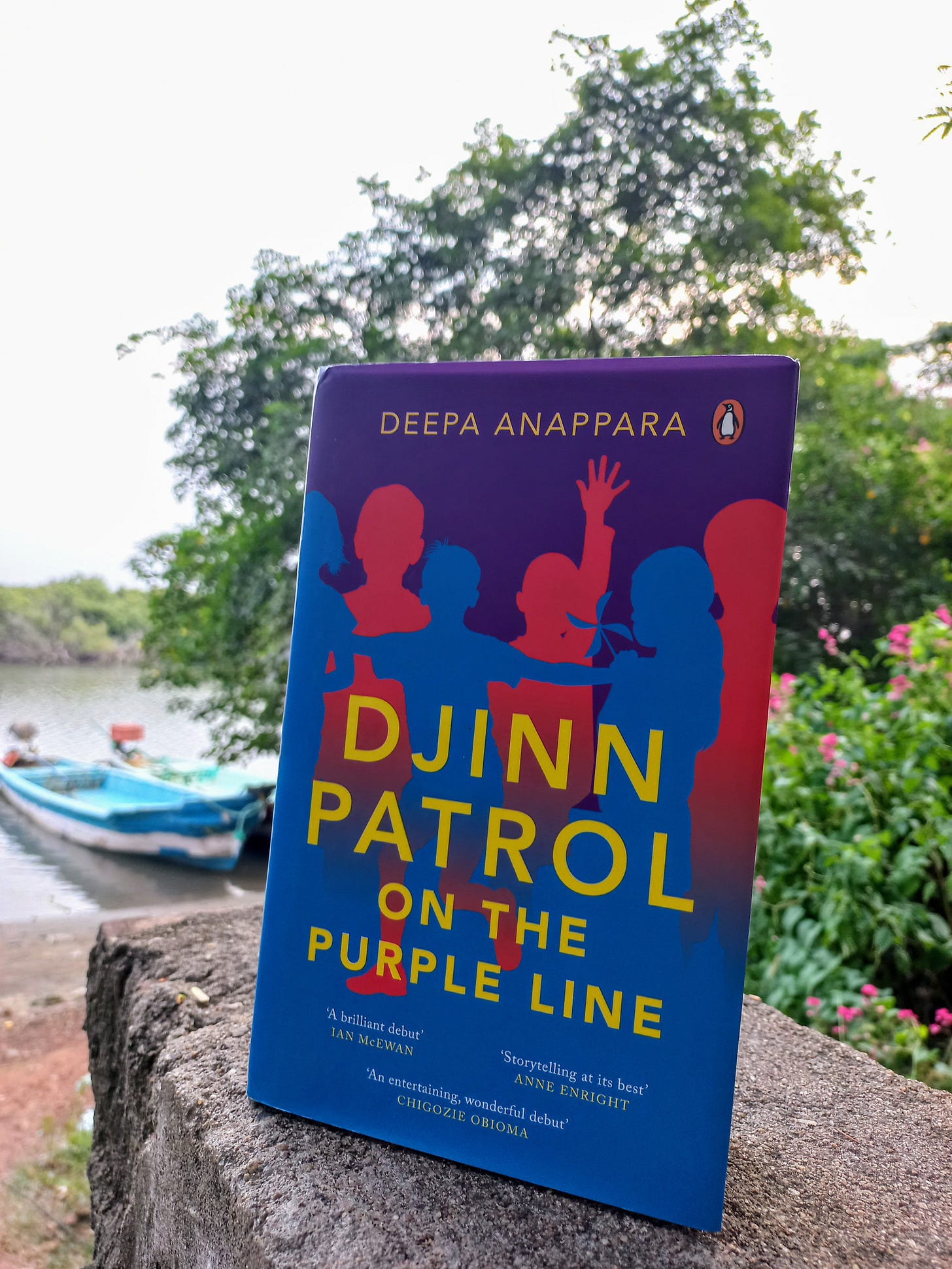How to present a bleak story in an entrancing way? Spin the story through the eyes of a naive child. That is the brilliant narrative style adapted by Deepa Anappara in her debut book. It gives an unassuming take on a very grim story prevalent in India.
In a slum in an unnamed city, a nine-year-old boy named Jai (the narrator) becomes a detective overnight as one of his friends goes missing. Equipped with the television knowledge of true crime detective shows and movies, he joins hands with his reluctant friend Faiz and the sensible and studious girl Pari (one can't help but draw a parallel between Pari and Hermione's character) to find the missing friend. At first, they speculate it to be the work of a Djinn (In Arabian and Muslim mythology, a Djinn is a spirit that can assume various forms), but they end up investigating prospective thugs in the neighborhood. Before they can make any progress in finding the missing friend, there are more missing persons. The story suddenly takes a menacing tone from the amateurish crime-solving joyride.
Despite the book being a work of fiction, it is indeed a derivative of facts (thanks to the journalist background of the author). The narrative is mostly linear with interjections of chapters that follow the children on the day they get abducted. These chapters end in cliffhangers and there is no indication of any evil doings by anyone, which only keeps the readers guessing. Several backdrops are presented in this book like religious violence, police corruption, political powerplay, economic disparity, genocide, etc., but, not in detail to overwhelm the readers.
The story of child trafficking, poverty, life in a slum, etc., has been told before by authors and movie makers in various languages. However, what makes this book stand out is its brilliant prose. As we hold the hands of Jai who takes us through the alleyways on his detective adventure to find out about the missing children, we are also keen to know how and when Jai will come to face reality which is evident to us - the readers, from the get-go of the story.
As the book comes to an end, Jai has to grow up overnight after the exposè of the child abduction ring. Gullible Jai's hope of finding the missing children shatters down and his outlook changes radically as the environment that is known to him also shifts dramatically overnight. The book doesn't give closure to any issues, which is the most realistic picture of the still-existing menace of child trafficking. Do we have to be too realistic in the work of fiction? That's perhaps debatable for another day.
Although objectively I liked reading this book, I find it lacked some necessary ingredients to elevate it to an outstanding and emotional experience. In the footnote, the author claims to be angered by the system that has failed to protect people. However, that anger didn't transcribe in the novel because a 9-year-old narrator can't understand the bigger picture and role of the system, to begin with. The abrupt ending of the book felt very rushed.
-Preethi

